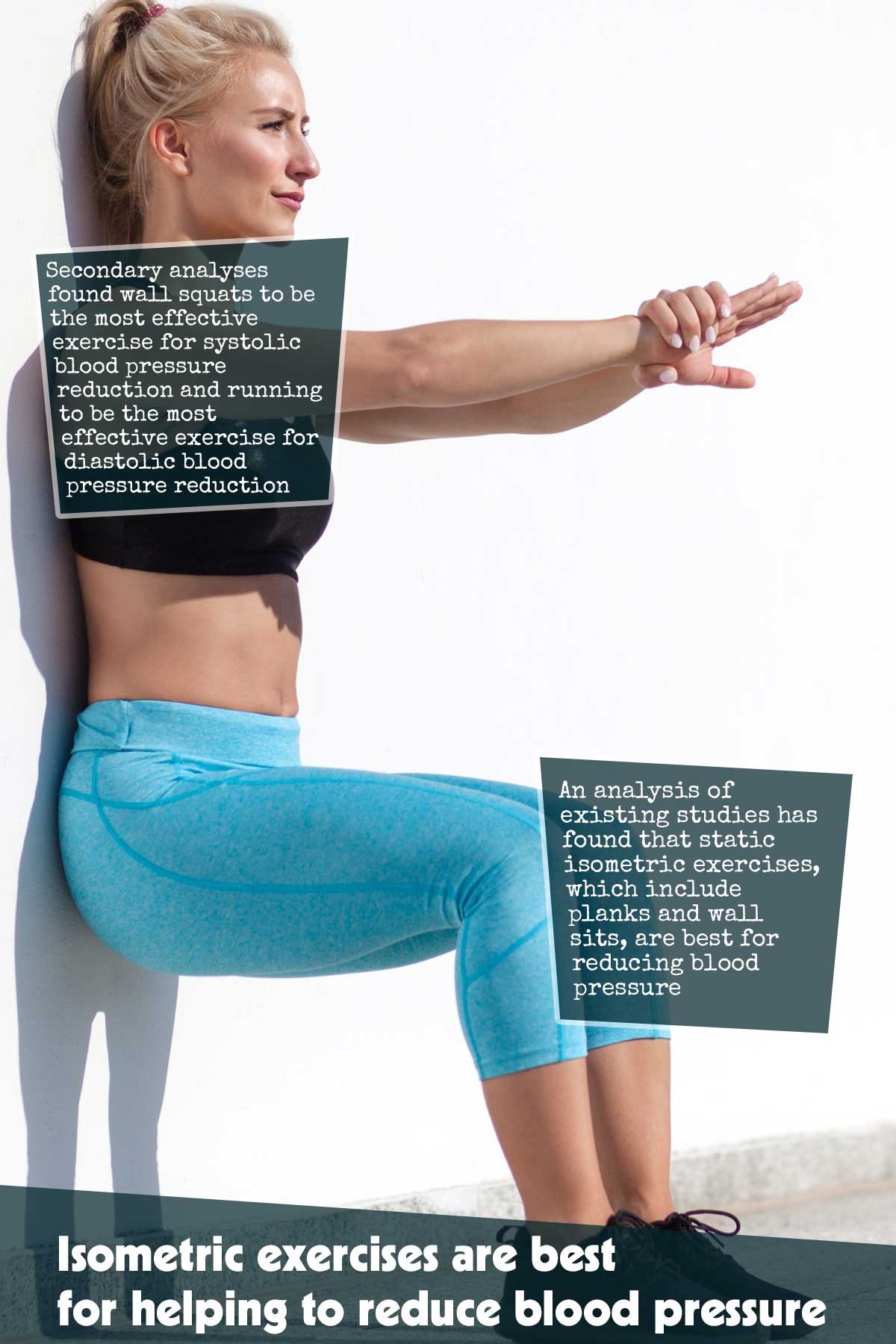An analysis of existing studies has found that static isometric exercises, the kind that engage muscles with no movement, which include planks and wall sits, are best for reducing blood pressure.1✅ JOURNAL REFERENCE
DOI: 10.1136/bjsports-2022-106503
The results however indicate that aerobic or cardio exercise; HIIT or high-intensity interval training; dynamic resistance training, which include press-ups, squats, and weight training; are all effective.
The researchers suggest that it might be time for the current guidelines for exercises to help prevent and treat hypertension to be reviewed.
Formerly published studies have shown that exercise is generally linked to significant blood pressure reductions, with aerobic exercise, which includes cycling, running, and walking, the kind generally advised for blood pressure management.
This recommendation is however based mostly on older data that don’t include the newer kinds of exercises, which include isometric exercise and HIIT, which means that the existing recommendations are most likely out of date.
To update information on which kind of exercise for managing blood pressure is best, the researchers searched databases for studies that reported the impact of an exercise training treatment lasting 2 weeks or more on resting blood pressure.
The exercise treatments were categorized as dynamic resistance training; aerobic; a combination of the two; isometric; and HIIT exercises.
A healthy resting blood pressure reading was classified as under 130/85 mmHg; a pre-high blood pressure reading as 130-139/85-89 mmHg; and a high blood pressure reading as 140/90 mmHg or more.
The first blood pressure reading number is a measurement of arterial pressure when the heart is beating, known as systolic blood pressure; the second blood pressure reading number is a measurement of arterial pressure between beats, known as diastolic blood pressure.
The final analysis included 270 randomized controlled studies that involved 15,827 individuals.
The analysis of the pooled data revealed significant systolic and diastolic blood pressure reductions after all the different exercise types but with the most significant reductions in systolic as well as diastolic blood pressure after training with isometric exercises.
The reductions in blood pressure after training with aerobic exercises were 4.49/ 2.53 mmHg; reductions were 4.55/3.04 mm Hg after training with dynamic resistances; reductions were 6.04/2.54 mmHg after combined exercise training; reductions were 4.08/2.50 mmHg after HIIT training; and reductions were 8.24/4 mmHg after training with isometric exercises.
The values of effectiveness in ranking order for systolic blood pressure reduction were 98% for isometric exercise training, 76% for combined training,46% for dynamic resistance training, 40.5% for aerobic exercise training, and 39% for HIIT training.
Secondary analyses found wall squats to be the most effective exercise for systolic blood pressure reduction and running to be the most effective exercise for diastolic blood pressure reduction, with isometric exercise the most efficient for systolic as well as diastolic blood pressure reduction.
The researchers point out that the results could have been influenced by participant type variation across the studies and differences in exercise interventions and methodological and statistical processes.
They however conclude that isometric exercise training is nevertheless the most effective method for both systolic as well as diastolic blood pressure reduction.




